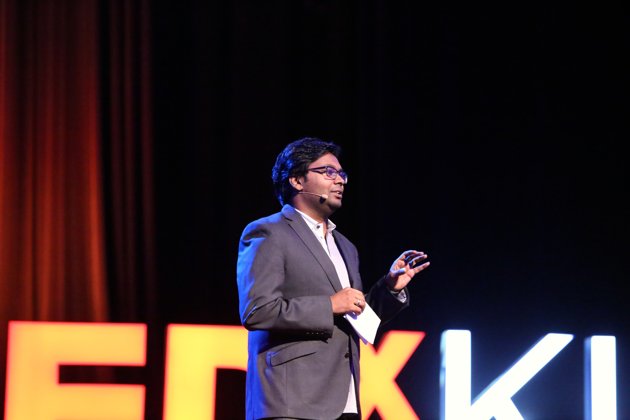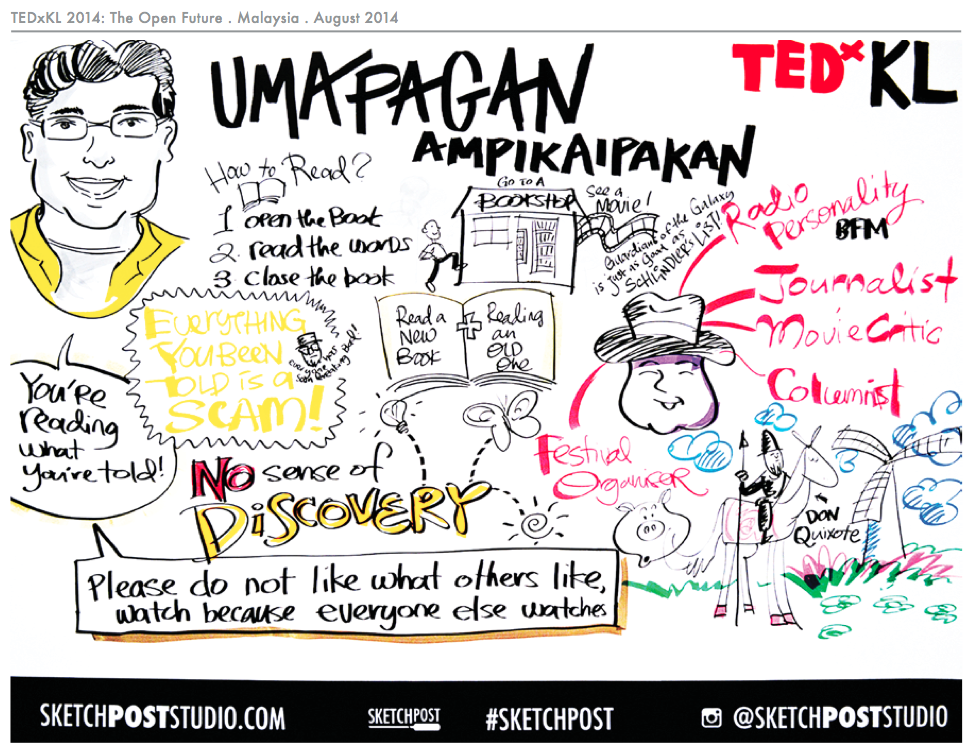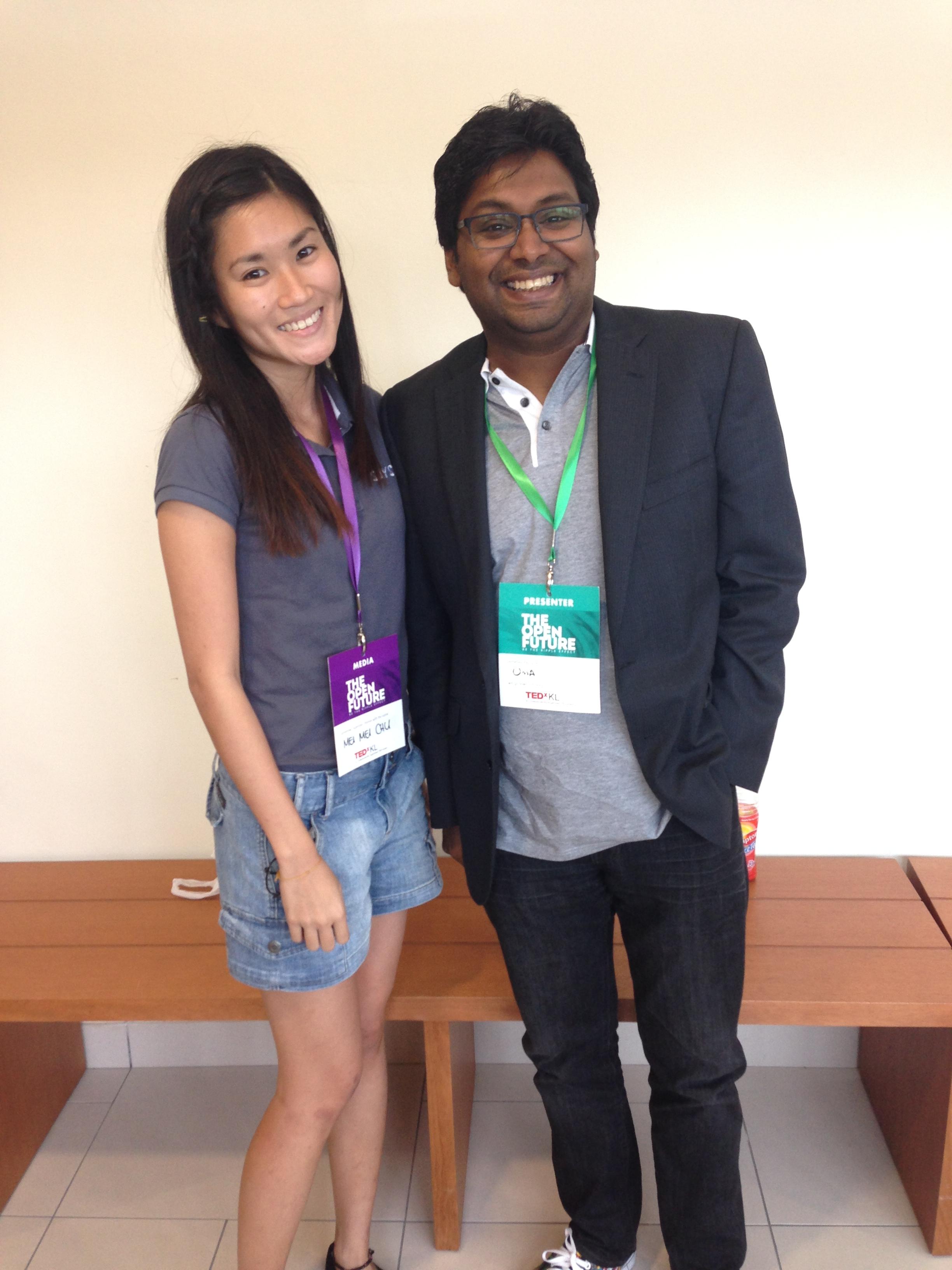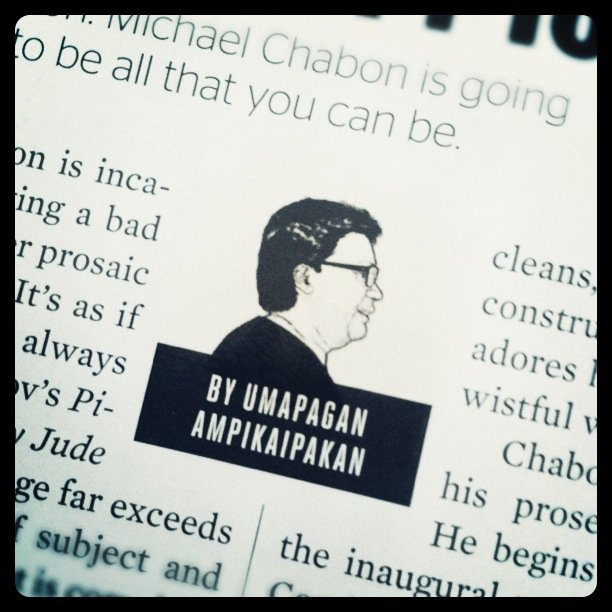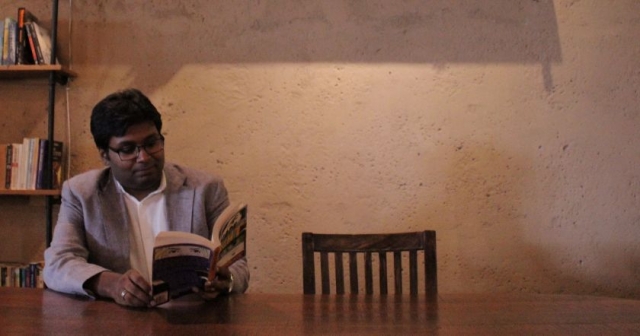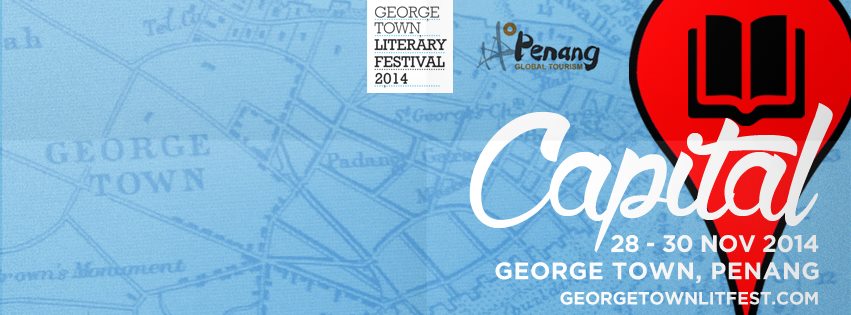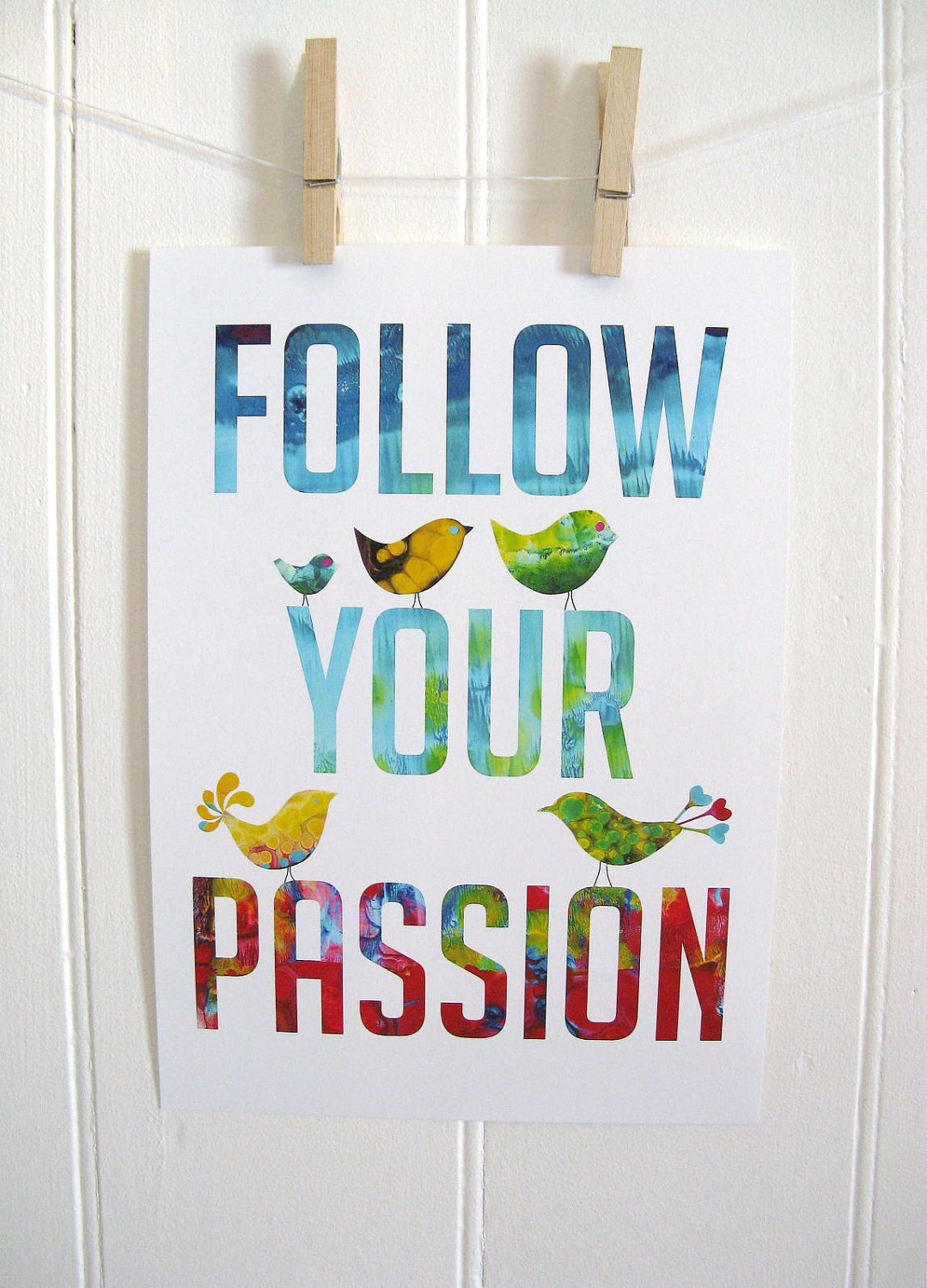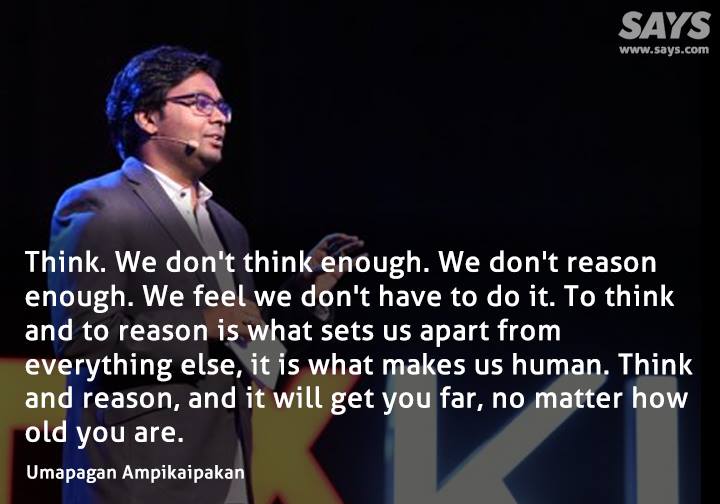SAYS Exclusive: Umapagan Tells Why You Should Read, Watch And Listen To EVERYTHING
SAYS had a chat with Umapagan Ampikaipakan after TEDxKL to understand how this regular Malaysian became so worldly, the worrying reading habits of Malaysians, and solving the problem of passion. In return, Uma astounded us with valuable insights and advice that everyone, regardless of age, should know.
Umapagan Ampikaipakan wears many hats - he is a literary commentator, movie critic, radio presenter on BFM and more. He ruminates everything from the idiosyncrasies of Malaysian politics to the history of rock music.
Now, Uma can add another feather to his hat as a speaker at TEDxKL 2014 where he presented "How To Read"
Mei Mei Chu from SAYS caught up with Uma to understand how this regular Malaysian became the intelligent person we hear on radio. Uma reveals that he had a regular Malaysian education background.
Uma: My education background was regular. Primary school was a government school, secondary school was a private school, but it was still government syllabus, it wasn't an international school. Then, I went on to university. I have three degrees but I received standard education up to Form 5 and Pre-U where I did Taylor’s College. So, it was all pretty standard Malaysian-style.
At home, he was always encouraged to read, watch television and movies, and listen to music
Uma: I think the key was that I was always encouraged to read at home. I read a lot at home. But it wasn’t just reading, I was allowed to watch TV. I was allowed to watch movies. I think my parents took me to my first movie when I was three or four years old. That’s why I’m a big proponent of consuming everything. I think they are all useful. It wasn’t just passive watching of television, my parents wouldn’t put me in front of a television and say "ok-lah, keep yourself occupied". No. There was always a learning process to whatever we watched. There was always an additional conversation about it.
Uma: I think that is the key to my education, in the sense that the home education complemented the school education very well. My parents were always very encouraging of consuming all kinds of media - music, movies and television - and we read a lot at home all the time. I think that’s key.
Reading, consuming information from all forms of media, and an encouraging family made all the difference for Uma
Uma: Reading did make a lot of difference, and I guess an encouraging family too. Not just reading, that’s what I wanted to stress before. A lot of people would think books are good; TV is bad; movies are bad; music, why waste your time. No. Reading is good, but I think you have to be a consumer. Even if you want to be a producer, a writer, a musician, or a movie maker, you can't do it unless you read, unless you watch movies.
Uma: There’s nothing that makes me angrier when I met someone who says they want to be a writer and I ask: “What do you like to read?” They say: “Oh, I don't have time to read.” How do you write if you don’t read? And how do you make movies if you don't actually sit and watch movies? So, I think reading, consuming media, consuming information will make all the difference. And we don't have any excuse anymore, it’s all free, it’s all there, it's everywhere.
Uma stresses that it was not just passive consuming of information. He and his family always had discussions around the movies and books they were consuming.
Uma: You have to consume everything but consume it well, so don’t just let it wash over you, and don't just mindlessly watch a movie, or a TV show, or just read something for fun and not actually gain anything from it. You can still read for fun and still gain a lot. You can read a comic book, and it can be as useful as a 500-page non-fiction book as long as you do it well.
SAYS: When you were consuming all these movies and books as a kid with your family, did you always have discussions about what you were watching?
Uma: We did. That’s something we did from a very young age, it’s quite interesting. We not only watch movies in my house, we’d also watch the Oscars together. My mom and I would sit down and watch the Oscars for hours. My mom and I would then ask "Who’s your favourite? Who do you pick?" So there would be a discussion about what’s the best movie, why is it the best movie, why do you think it’s better than that movie. It wasn’t just "Here’s RM10, go and see a movie, stay occupied for three hours, and come back home". There’s always a chat about what did you watch, what did you like about it, what did you hate about it.
What really gave Uma a critical mindset when it comes to discerning things from politics to entertainment is curiousity. "Curiousity is what causes you to explore," says Uma.
SAYS: You’re very critical with your reviews and insights so you did not just read or watch passively. What helped you develop this critical mindset?
Uma: My first degree was a philosophy degree in the UK. I primarily focused on what they call 'Analytical Philosophy', which is about Western philosophy and analytic thoughts. It trains that kind of critical thought. Before philosophy I did a degree in Engineering, so I think I was always trained with that kind of analytic approach or scientific, logical approach.
Uma: But I don't think that’s what thought me to be critical. I think I was always just curious. I think that’s something that was instilled in me from a young age. And curiousity is probably the key that leads up to being analytical. If you watch a TV programme about sharks, hopefully that would make you curious about the ocean and decide "Oh, I'm gonna look up on things about this". Curiousity is what causes you to explore, and then you begin to actually compare between things you like and things you don't like.
Curiousity leads to critical thinking, but the most important thing is to act on your curiousity, says Uma
Uma: I think curiousity leads to that critical thinking, but you need to have that curiousity first. And to act on your curiousity. Okay, that’s the most important thing: act on your curiousity. Don't just be curious for a while and then go “Ok, never mind”. Act on your curiousity, that’s very important.
The literary festival director believes that reading and literature is the future for Malaysia, even if it's through 140 characters
Uma: I organised the Cooler Lumpur Festival in June, and the George Town Literary Festival in November. I think for Malaysia in general, reading and literature is the future. I think that’s what I’d encourage more Malaysians to do. Because at the end of the day, it’s still the primary way in which we absorb knowledge - we read. It doesn't have to be a book, it could be your iPad, your phone, your computer, but we’re still absorbing words through reading. I think books and words are going to be very important for a while.
SAYS: And you’re talking about literature, so novels and stories, but now we’re writing in 140 characters.
Uma: Nothing wrong with that. I think it’s a different kind of reading, I don't think it negates the longer stuff. I think it’s all supplementary to the longer stuff. I think it’s great. I think Twitter’s great. I think Facebook's great. I think all of these communication methods are great. We are writing, the more we do it, the more discerning we become. This discernment is why I say consume everything but consume it well. We need to develop that sense of discernment in ourselves, what’s good, what’s bad, what we like, what we don't like.
Not reading is the most detrimental reading habit of young Malaysians, says Uma. Malaysians should read everything and develop a critical mind.
SAYS: Is there something about the reading habits of young Malaysians that you think is detrimental?
Uma: Not reading at all is detrimental. I don't care what medium that people are using to read. As long as information is being disseminated, embrace all kinds of reading. And so like I said, consume everything. I don't mind if someone is reading a romance novel, or if someone is reading a 500-page biography, it doesn't matter. It’s all like a starter drug right, hopefully you get it, it entices you to something else, and you keep expanding and growing from it. So, not reading is detrimental. Read everything but develop a critical mind. Don't just accept everything at face value. By reading everything and by exposing yourself, you cant help but to be critical. It’s only when you read the same kind of things all the time that you think that’s the only truth.
Uma stresses to read EVERYTHING and not just what your friends are sharing. Watch a movie you wouldn't normally watch, it is your responsibility to explore and discover what you love and what you hate.
SAYS: The trend now is social news. People are not picking what they want to read, they are only reading what their friends are sharing.
Uma: That’s what I’m was discouraging in my TEDxKL speech. Read everything. Sometimes you are just exposed to what your friends are watching, but that’s why discovery is important. Discovery is hard because if you buy books or music on Amazon and Spotify, you’ll only be sent in the same direction as everyone else. The onus is on you to make an effort towards exploration and discovery. Walk into a bookshop, watch a movie that you wouldn't ordinarily watch. You may like it or you may hate it. If you hate it, at least you know the reasons why you don't like it.
You need discovery to stay fresh, even if you are focused on a certain niche. Exploring by consuming everything could also help you discover new ideas for your speciality.
SAYS: You say consume everything, but some people want to be niche in a certain topic.
Uma: You can still be niche and you can still discover. The functionality of niche-ness works if your occupation demands it. You need discovery to stay fresh. A very good example is that 16-year-old girl who invented a heat-powered flashlight. If that young kid had went "Oh, I'm 16 years old, I should do what 16 year olds do," then there’s no sense of discovery. The only reason she could have discovered the flashlight is if she explored, whether on the Internet or through her parents, whatever elements of engineering, science, biology, photo-voltage. Only then can she find new ideas that helped what she was doing. That’s why it’s important to discover new things, you never know, it might help your niche.
SAYS asked Uma his views on Gen Y's struggle with passion versus reality
SAYS: One of the biggest struggle Gen Y face is passion versus reality. People say go after passion, go after what makes you happy, but reality might not play out that way. What is your take on that?
Uma: I think passion is very important in whatever you do, because it’s the only thing that keeps you motivated, or else you would be bored out of your mind. But passion alone is not enough, passion and hard work can be enough. When you think about it, no Malaysian parent will encourage their child to be a literary critic, which is what I am, because there is no money in it, right? But you can make a living out of it. The hard work element is what trips passion into reality. You have to work really hard to get incredibly good at what you want to do. That means lots of hours of reading, writing and honing your skills. It’s what your parents have been telling you for the longest time: work hard and you will do well.
SAYS: What about 20-somethings from families with Asian mindsets, who want to pursue passion, but is faced with family and financial responsibilities?
Uma: We all have responsibilities, the financial burden and stuff. I think if you are really good at something and you want to pursue it, you have to convince your parents. You can see where parents are coming from, they are thinking 'If I have security, I can leave the kid be, then my job is done as a parent'. You can't blame them. At the same time, it comes with some convincing and hard work on your part to convince your parents that you are genuinely good at something. They will come to recognise your talent and skill. If you are passionate about something, work at it. You just have to do it, but it doesn't mean you have to do that and nothing else. You can be accountant by day and rapper by night.
SAYS: So you are really lucky to be living your passion, aren’t you?
Uma: Yeah, I can't believe that people pay me to do this.
At the end of the interview, Uma gave a very important piece of advice to anyone who is reading this: think and reason, and it will get you far
